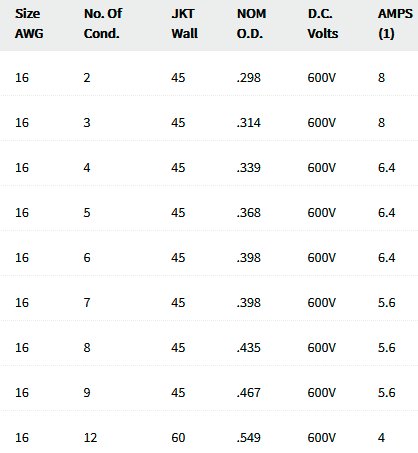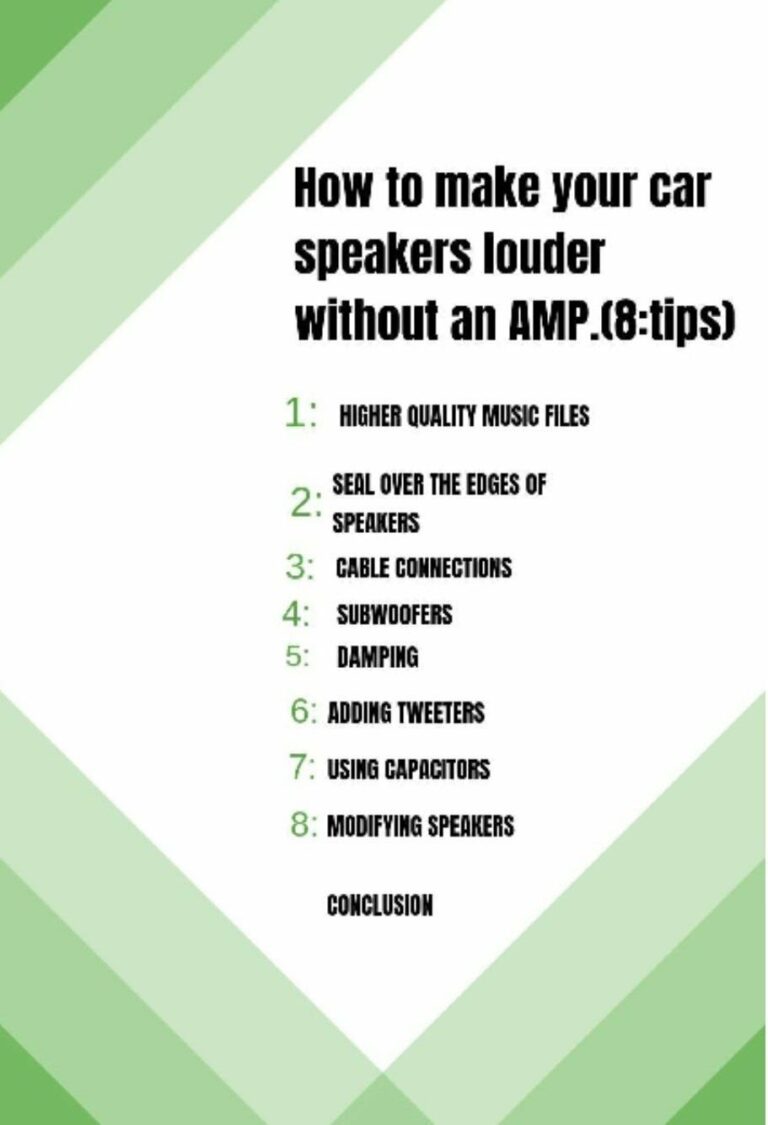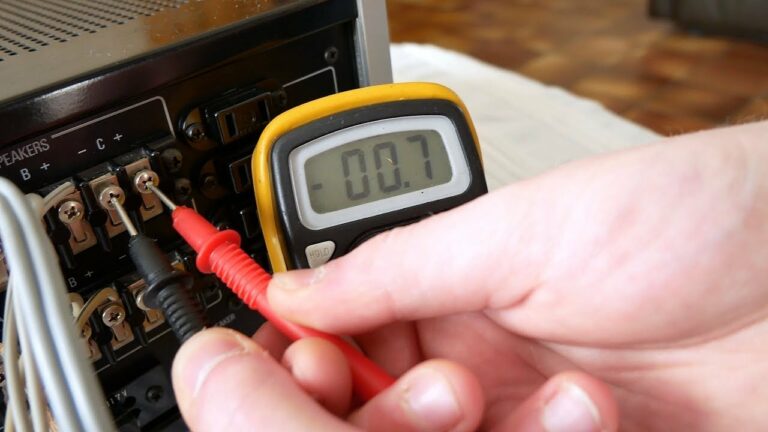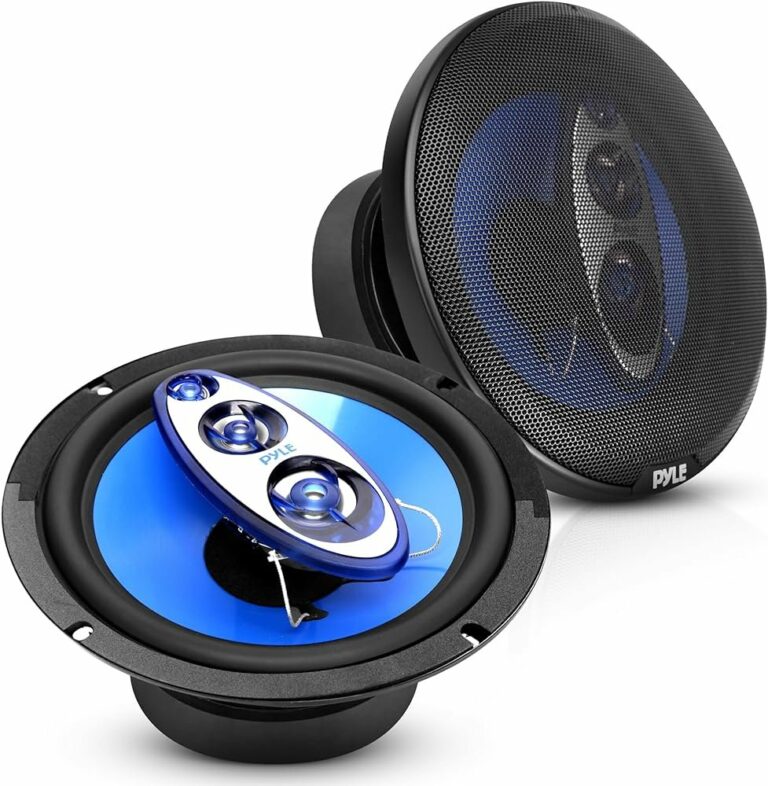How Many Watts Can 16 Gauge Speaker Wire Handle?
How many watts can 16 gauge speaker wire handle? It’s a question that often arises when setting up a sound system or installing speakers. The answer lies in understanding the capabilities of this type of wire and ensuring it can effectively handle the power output from your amplifier or receiver.
In this article, we will delve into the world of speaker wire gauge and explore how it affects power handling. By the end, you’ll have a clear understanding of what 16 gauge speaker wire can handle and how to make the most of your audio setup. So, let’s dive in and demystify the world of speaker wire gauges.
How Many Watts Can 16 Gauge Speaker Wire Handle?
When it comes to setting up a speaker system, choosing the right speaker wire gauge is essential for optimal performance.
The gauge of the wire refers to its thickness, with lower gauge numbers indicating thicker wires. In this article, we will focus on 16-gauge speaker wire and delve into how many watts it can handle.
Understanding the power-handling capabilities of your speaker wire is crucial to ensure a safe and efficient audio setup.
What Is Speaker Wire Gauge?
Before we dive into the specifics of 16-gauge wire, let’s first understand what speaker wire gauge is. Speaker wire gauge measures the thickness of the wire conductor.
Thicker wires generally have lower impedance, which is the opposition to the flow of electrical current. Speaker wire gauge is denoted by a number, often ranging from 12 to 18. The lower the number, the thicker the wire.
Factors Affecting Power Handling
The power-handling capabilities of speaker wires are influenced by several factors. It’s not solely determined by the wire gauge, but also by the length of the wire, the impedance of the speakers, and the amplification used in the audio system. Let’s take a closer look at each of these factors.
Wire Length
The length of the wire between the amplifier and the speakers plays a significant role in power handling.
Longer wires experience more resistance, resulting in a decrease in power delivered to the speakers. Therefore, shorter wire lengths can handle more power compared to longer ones.
Impedance of the Speakers
Speaker impedance refers to the electrical resistance the speaker presents to the audio signal. Most speakers have an impedance of either 4 or 8 ohms.
The lower the impedance, the more power the speaker requires. Higher gauge wires may present more resistance, potentially affecting power delivery.
Amplification
The power amplifier you use also impacts the power delivery to the speakers. Different amplifiers have varying power outputs, and matching the amplifier’s capabilities with the wire gauge ensures optimal power handling.
It’s essential to follow the manufacturer’s guidelines for the appropriate wire gauge based on the amplifier’s power rating.
Power Handling of 16-Gauge Speaker Wire
Now, let’s specifically explore the power handling capabilities of 16-gauge speaker wire. While wire gauge alone cannot determine the exact wattage a wire can handle, it provides insight into the general power capacity.
Average Power Handling
16-gauge speaker wire is commonly used for home theater systems and general audio setups. It can typically handle an average power range of 60 to 80 watts per channel. This estimate considers a wire length of 50 feet or less.
Shorter Wire Lengths
If you’re using shorter wire lengths, such as 25 feet or less, 16-gauge speaker wire can handle higher power outputs. It can comfortably handle power between 80 and 200 watts per channel for such configurations.
Longer Wire Lengths
For longer wire lengths exceeding 50 feet, it is recommended to use a thicker gauge wire, such as 14 or 12 gauge, to minimize power loss due to resistance.
While 16-gauge wire can still work in these setups, it may not be able to handle high-powered amplifiers effectively.
Upgrading to Thicker Gauge Wire
In certain cases, you may need to upgrade from 16-gauge wire to a thicker gauge to accommodate more powerful audio systems. Here are a few scenarios where upgrading to a thicker gauge wire is advisable:
High-Powered Amplifiers
If you plan to use amplifiers that deliver more power per channel, such as those exceeding 200 watts, it is recommended to use a thicker gauge wire. Thicker wires have lower resistance and can handle higher power outputs with minimal signal loss.
Long Wire Lengths
For wire lengths exceeding 100 feet or installations where the speakers are far from the amplifier, thicker wires are crucial to mitigate power loss. Thicker gauge wire reduces resistance, ensuring efficient power delivery to the speakers.
Benefits of Using Thicker Gauge Wire
While 16-gauge wire is suitable for many applications, opting for thicker gauge wire can provide several advantages:
Reduced Power Loss
Thicker wires have lower resistance, leading to less power loss and ensuring that the speakers receive an adequate amount of power from the amplifier. This results in better overall audio quality and performance.
Improved Signal Transmission
Thicker gauge wire offers better signal transmission, resulting in clearer and more accurate audio reproduction. It minimizes the chances of signal degradation and distortion, providing a more immersive listening experience.
Future-Proofing Your System
Investing in a thicker gauge wire ensures that your speaker system can handle future upgrades. If you plan to upgrade your amplifier or speakers to more powerful options, using thicker gauge wire can handle the increased power requirements.
SPEAKER WIRE GAUGE GUIDE: 12 AWG vs 14 AWG vs 16 AWG vs 18 AWG
Frequently Asked Questions
What is the maximum wattage capacity of 16-gauge speaker wire?
The maximum wattage capacity of 16-gauge speaker wire depends on a few factors such as the length of the wire, the impedance of the speakers, and the overall resistance of the wire. However, as a general guideline, 16-gauge speaker wire can handle up to 100 watts of power for shorter distances (around 20 feet). For longer distances, it is recommended to consult a wire gauge chart or use a thicker wire gauge to ensure optimal performance and prevent overheating.
Can 16-gauge speaker wire handle higher wattages?
While 16-gauge speaker wire is commonly used for most home audio setups, it is not designed to handle extremely high wattages. If you require a wire that can handle higher wattages, it is recommended to use a thicker gauge wire such as 14-gauge or 12-gauge. Thicker wires have lower resistance and can handle more power without significant loss or potential damage to the wire.
What happens if I exceed the wattage capacity of 16-gauge speaker wire?
If you exceed the wattage capacity of 16-gauge speaker wire, it can lead to overheating, signal distortion, and potential damage to the wire. The wire may not be able to handle the increased power, resulting in a poor audio quality or even wire failure. To ensure the longevity and proper functioning of your audio system, it is crucial to match the speaker wire gauge with the appropriate wattage of your setup.
Should I consider upgrading to a thicker speaker wire for higher wattages?
If your audio system requires higher wattages or longer cable runs, it is advisable to upgrade to a thicker gauge wire. Thicker wires have lower resistance, which means they can handle higher wattages without significant power loss or potential damage. Upgrading to a 14-gauge or 12-gauge speaker wire will provide better performance and ensure that your speakers receive the power they need to deliver optimal sound quality.
What are the risks associated with using an undersized speaker wire for higher wattages?
Using an undersized speaker wire for higher wattages can pose several risks. The wire may heat up excessively, leading to potential melting or fire hazards. Additionally, the increased power demands can cause signal distortion, resulting in poor audio quality. It is important to use the appropriate wire gauge for your specific audio setup to minimize these risks and ensure the longevity and safety of your system.
Final Thoughts
In conclusion, the question of how many watts 16 gauge speaker wire can handle is essential for ensuring optimal sound quality and preventing any potential safety hazards. Based on our findings, it is recommended to use 16 gauge speaker wire for systems with a power output of up to 100 watts. Using a higher gauge wire for higher power outputs will help prevent overheating and signal loss. Ultimately, understanding the capabilities of your speaker wire gauge is crucial in maximizing the performance of your audio system and ensuring a seamless listening experience.





